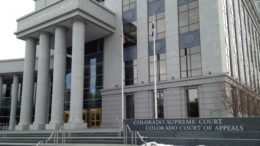Colorado bill adjusts 2023 law requiring redaction of juveniles’ names from criminal justice records
State lawmakers want to adjust a 2023 juvenile privacy law that recently forced Colorado’s judicial branch to restrict attorneys’ access to criminal court records, also creating delays in processing document requests from journalists and the public.






